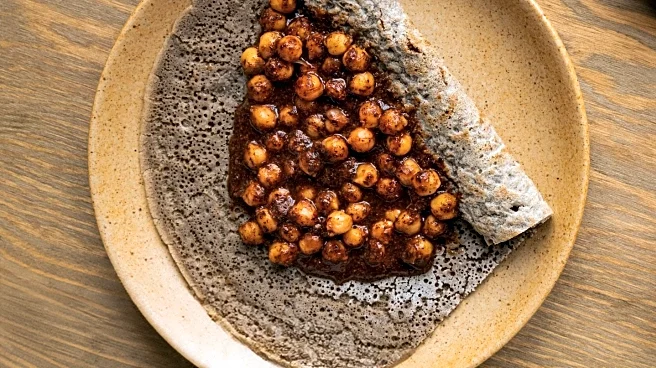Rapid Read • 7 min read
Spit-roasted meats, a cooking technique dating back to ancient times, have evolved into popular dishes worldwide, such as al pastor tacos, shawarma, and döner kebabs. Raul Morales, owner of Taqueria Vista Hermosa in Los Angeles, is a third-generation chef specializing in al pastor tacos, a dish with roots in Mexico and influenced by Middle Eastern culinary traditions. The technique involves layering thin slices of meat on a rotating spit, creating rich flavors. This method has historical ties to male bonding and victory celebrations, as noted by food historian Ken Albala.
AD
The global popularity of spit-roasted meats highlights the cultural exchange and adaptation of culinary traditions. These dishes represent a fusion of ancient techniques with modern flavors, showcasing the dynamic nature of food culture. The widespread appeal of al pastor tacos and similar dishes reflects the interconnectedness of global cuisines and the ability of food to transcend borders. This culinary evolution also underscores the role of immigrants in shaping local food scenes, contributing to the diversity and richness of culinary offerings in places like Los Angeles.
The adaptation of spit-roasted meats into various cuisines illustrates the broader theme of cultural integration and innovation. As these dishes continue to evolve, they may inspire new culinary creations and collaborations, further enriching the global food landscape. The historical significance of these cooking techniques also offers insights into societal values and practices, providing a deeper understanding of cultural heritage and its impact on contemporary cuisine.
AD
More Stories You Might Enjoy










